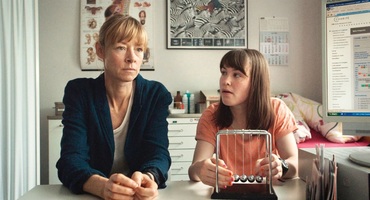
As a society, we love sex. Sex sells. But it has to be the right type of sex. If you don’t look right, or you’re too old, mainstream society doesn’t want to think about you having sex. And that extends to those people with learning difficulties. Never mind that you might have sexual urges just the same – society rushes to infantilise you. That’s the central issue of Dora or The Sexual Neuroses of Our Parents, the story of an 18-year-old girl with unspecified learning disabilities who comes off her medication and discovers her sexuality, to the horror of her protective parents.

Dora wants sex because it feels good, and she associates Peter with that. Dora could have classed Peter as the romantic hero, but it would have been a weird, cheap resolution. Rather than Peter becoming a better person through his association with Dora, he remains a bit of a bastard throughout. He might be nice to Dora, but to her parents, he claims that he’s just there to fuck her. He’s the amoral centre of Dora’s world, and it’s great that we never quite figure him out.
And that indeterminacy is mirrored even in the look of the film. Towards the start, when Dora is drugged up, shots from her point of view tend to be hazy around the edges and a whirl of motion. Later on, there’s a change in focal length so that faces loom large and dominate the screen as much as they dominate Dora’s attention when people force her to focus on them. Just as Dora can’t see the full picture, neither can we.

It’s a step of ambiguity too far for this film, which remained grounded in reality up until this point. But still, Dora is a fairly good film that deals with an issue of sexuality rarely dealt with in mainstream media.


 RSS Feed
RSS Feed
